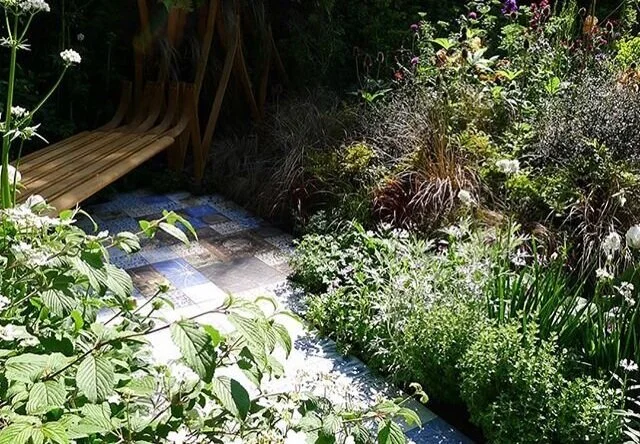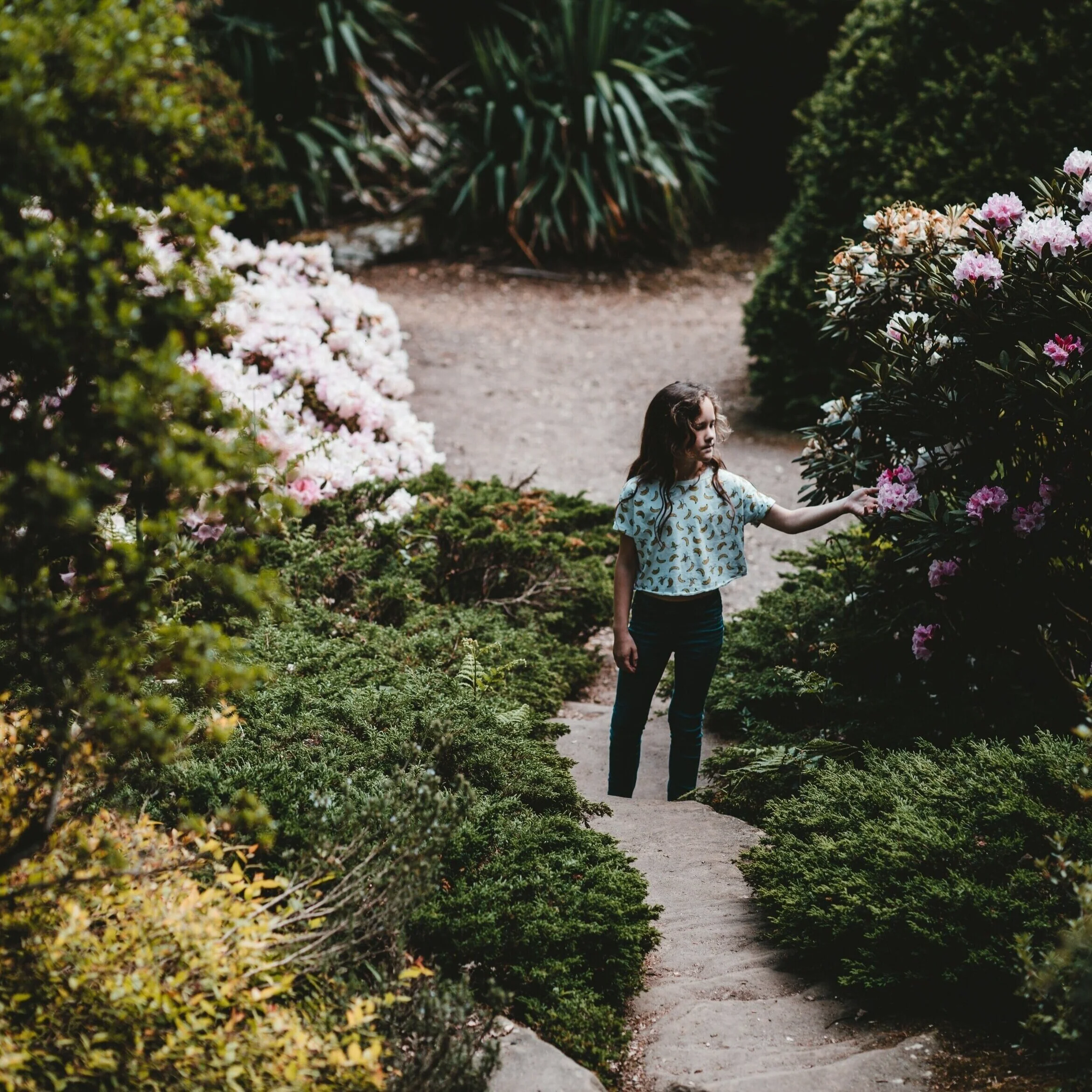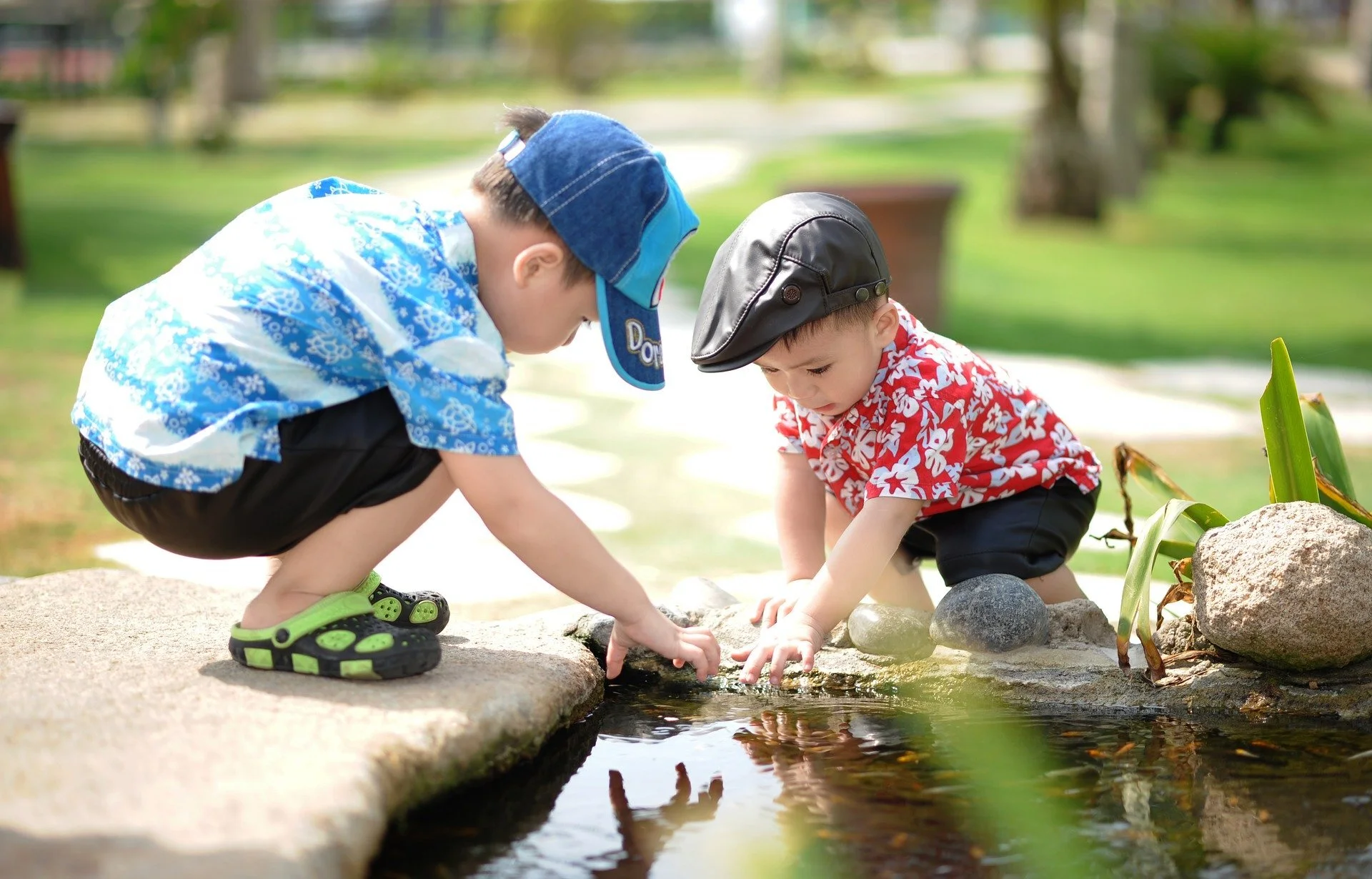
Gardens for Children with ASD
As parents we all want the very best for our kids. We want them to be happy, healthy and productive. And when we have a child living with a sensory disorder, creating an environment that provides enrichment, safety, comfort and engagement becomes even more important.
My understanding of the therapeutic benefits of nature became heightened when my four children were each diagnosed with a variety of special needs. I’ve seen my children, and many others, flourish as a result of the mental and physical benefits provided by gardens designed to meet their specific needs.
As result of my experience with my kids, I feel passionately that inclusive and accessible therapeutic garden spaces are of enormous benefit for every individual.
The mental and physical health benefits have been proven time and again by scientific research and, not only that, I have seen them with my own eyes. I want to draw attention to the great work being done in the area of therapeutic gardens and revolutionise the way medical, mental and physical conditions are treated in our medical system.
Let’s explore the types and benefits of sensory and therapeutic gardens for children with ASD.
Sensory Gardens
Sensory gardens are therapeutic gardens that specifically focus on stimulating as many of the senses as possible and can be particularly powerful for assisting individuals with sensory integration issues. For those with under-stimulated systems, a sensory garden can be an excellent way for children to increase their sensory stimulation and improve children’s interaction with their environment. For those who suffer from over-stimulated sensory integration issues, a sensory garden can be an extremely useful tool for gradually increasing sensory stimulation and improving integration skills.
The primary goal of sensory gardens is to heighten interaction with nature. Your sensory garden should not be a passive space but rather a place to enjoy all of the wonders of nature, particularly for children.
Well-planned spaces will also help to facilitate a number of therapies available to ASD children, such as horticultural therapy, nature as therapy and sensory integration therapy.
Sensory gardens can be designed in different ways, either as standalone gardens or part of a larger therapeutic garden for children with ASD. However, given that some children suffer from extreme sensory overload, whilst others are under-stimulated through their senses, there are some principles that you should adhere to when designing a sensory garden for children with autism.
Providing a space to retreat from sensory overload
Providing opportunities for increased socialisation
Designing a series of sequenced sensory spaces
Providing the opportunity to work on both gross and fine motor skills.
Providing the opportunity to cater to different Multiple Intelligence Learning Styles, including: kinaesthetic, naturalist, interpersonal, intrapersonal, musical, linguistic, logical and spatial.
“It’s not just about designing and building the gardens. It’s also about getting people out amongst them.”
— Jo Aquillina
Therapeutic gardens are spaces designed for wellbeing and, when designed properly, can improve the cognitive functioning, as well as the physical and emotional independence of the users.
The main goals for therapeutic gardens for children with ASD include:
To help children to apply what they have been learning in the classroom in a real-world environment. This provides them with critical coping skills outside the classroom.
To provide outdoor play and learning environments to help children with autism and special needs have fun in a safe and accepting outdoor setting. Many autistic children spend a lot of time in highly structured indoor learning environments.
To connect children with the restorative benefits of nature.
Provide space/s to retreat from sensory overload.
To help stimulate fine and gross motor activities.
When we design a Therapeutic Garden, we first look at the specific needs of the user, family, community or organisation. It is very important to create a space that is sustainable, low maintenance and inclusive, and can grow with the needs of the user. Often, this means creating a space that can integrate and enhance different therapeutic activities and provide multiple uses for creative play. Including spaces that provide a safe retreat from sensory overload, social and individual play opportunities and fine motor activities requires a tailored, creative design, especially with a small area! Seating, shelter from wind, sun and rain, accessibility and visual appeal are all aspects that must be considered carefully to produce a Therapeutic Garden that will stand the test of time.
Therapeutic Gardens
Our Approach.
There are many types of therapeutic gardens that we can help to create, such as inclusive community gardens, dementia gardens, sensory gardens, gardens for children with special needs, edible gardens, autism spectrum disorder gardens or healing gardens for institutions. We bring together teams of experts specially chosen to meet the needs of the garden users. These teams can help you assess your space and the needs of your users to develop the ideal tailor-made therapeutic garden. Many of our clients need assistance with the entire process from assessment and conception, through to implementation and maintenance, but others need our expertise for only part of it – either way, the choice is yours. Our experts include professionals such as:
Landscape designers and architects
Special educators
Therapists
Physiotherapists
Pediatricians
Landscape contractors
For larger community gardens we can assist with seeking funding, Council approvals and even provide a communications strategy for promoting the space. For all types of gardens, we can help with areas such as:
Needs assessment
Design
Implementation
Maintenance.

Get in Touch
We can create a Therapeutic Garden for your home or organisation.
Reach out, we’d love to chat!




